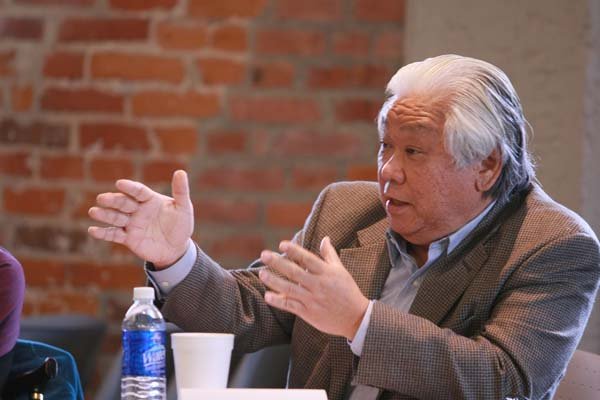LITTLE ROCK — Panelists at a forum in Little Rock on proposed changes to the nation’s health-care system said Monday that the debate is moving too slowly, leaving many people unable to get needed medical care or struggling with medical bills.
But some other Arkansans say the debate is moving forward too quickly and that Congress and voters need more time to evaluate the long-term effects of sweeping changes under discussion at the federal level.
Democratic leaders in the U.S. Senate are pushing to pass legislation before Christmas but face staunch Republican opposition, as well as disputes among their own party members.
The Arkansas AFL-CIO hosted the forum Monday, during which speakers told personal stories about health struggles. Ricky Belk, the group’s secretary treasurer, said change is needed now.
“We wanted to bring the health-care debate back to the people who matter,” Belk said.
Nationally, the AFL-CIO represents 57 national and international labor unions, with a stated mission “to improve the lives of working families,” according to its Web site.
But Teresa Oelke, state director of Americans for Prosperity, said Congress needs to slow down, make legislation available on the Internet and give people time to study it.
“It’s hard to talk about health-care policy that takes over one-sixth of our economy when only a few members are privy to those discussions,” she said.
Americans for Prosperity is a national public-policy group that says it advocates for limited government and free markets. The group’s Arkansas chapter has held several events on the health-care debate, including a Dec. 10 event in Rogers that drew about 200 people. Additional forums are planned for Thursday in Little Rock, Conway and Fort Smith.
At the Monday forum, Anna Kay Williams of Little Rock said she has a condition that causes numbness and pain in her hands and feet. She sometimes uses a wheelchair. Doctors prescribed a medication that helps, but Williams said her insurance won’t cover it.
Instead of paying $742 out of pocket monthly for the medication, she said she cuts pills in half.
Mary Ann Hopkins said she’s been fighting health insurers since her daughter was diagnosed six years ago with a rare kidney disorder. Her private insurer and Medicare refused to pay mounting medical bills because each said the other should provide the primary coverage.
Hopkins said she’s concerned what will happen to her daughter - now a 23-year-old college student - because she won’t be able to get affordable insurance coverage with her condition.
Kelly Arellanes, 50, said she’s unemployed after suffering a traumatic brain injury in a 2004 horse-riding accident. She was airlifted to a Fort Smith hospital and had to have emergency brain surgery.
Her health insurer initially refused to pay and has disputed many claims since.
“My health-care insurer has fought us from A to Z,” Arellanes said.
Former Arkansas Court of Appeals Judge Wendell Griffen, a panelist at the forum, said the stories illustrate the need for immediate change.
“I keep wondering when are we going to decide that the American family is too important to let an insurance company bankrupt it,” Griffen said.
Oelke agreed that change is needed, but said Congress should consider other steps to reduce health-care costs, such as changing tort laws and allowing insurance companies to compete across state lines.
“These bills don’t really address cost controls when it comes to health care,” she said. “Saying that we’re going to control premium costs by simply spending more tax dollars to bring down the increases, that’s not how that works in the real world.
“Nobody’s denying that health-care reform is needed,” she said. “But to replace an insurance bureaucrat with a government bureaucrat is a worse situation, because at least you can sue the insurance companies.”
Arkansas, Pages 11 on 12/15/2009
